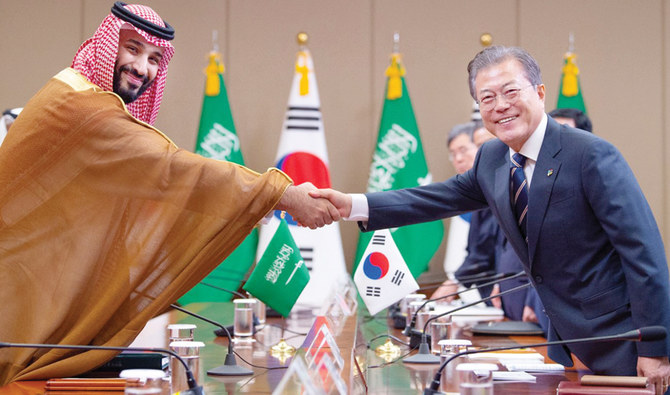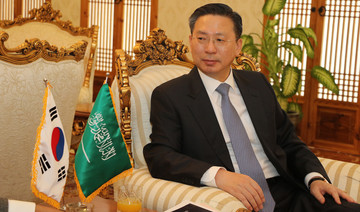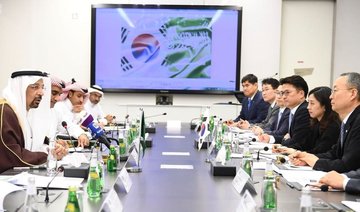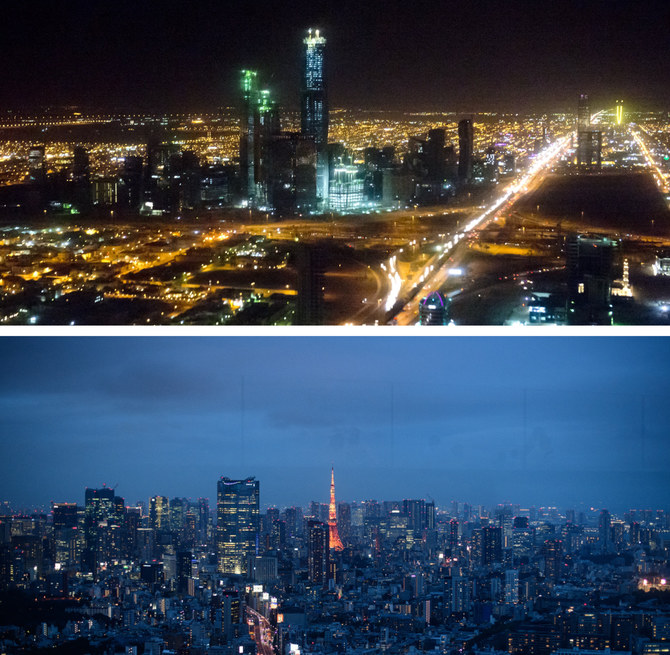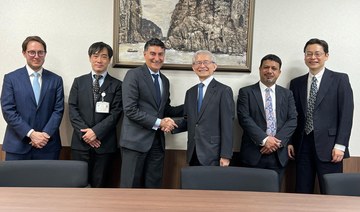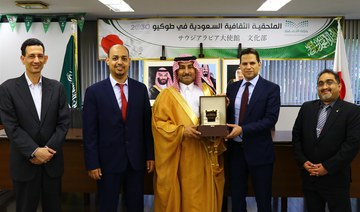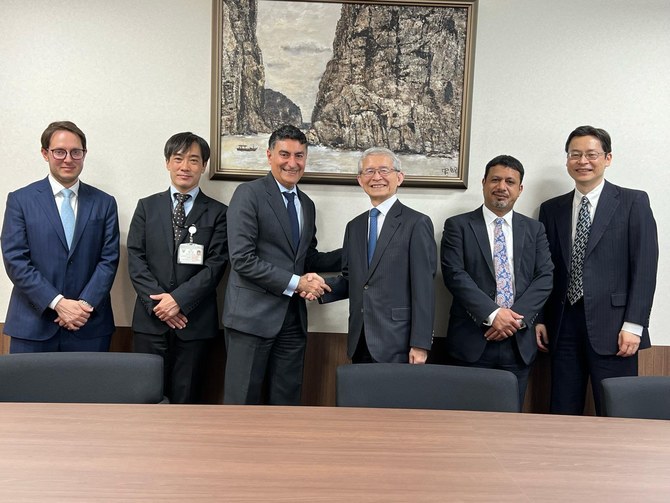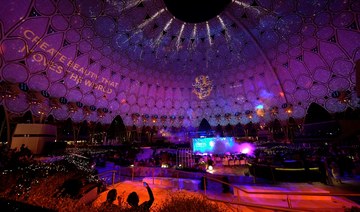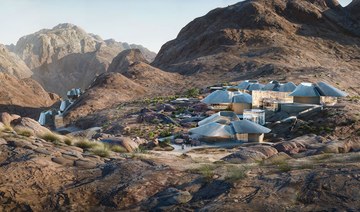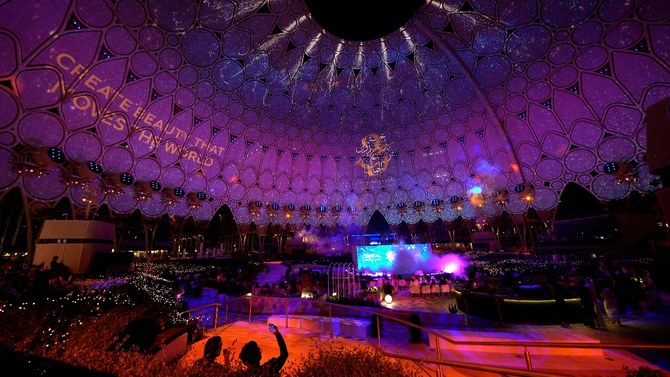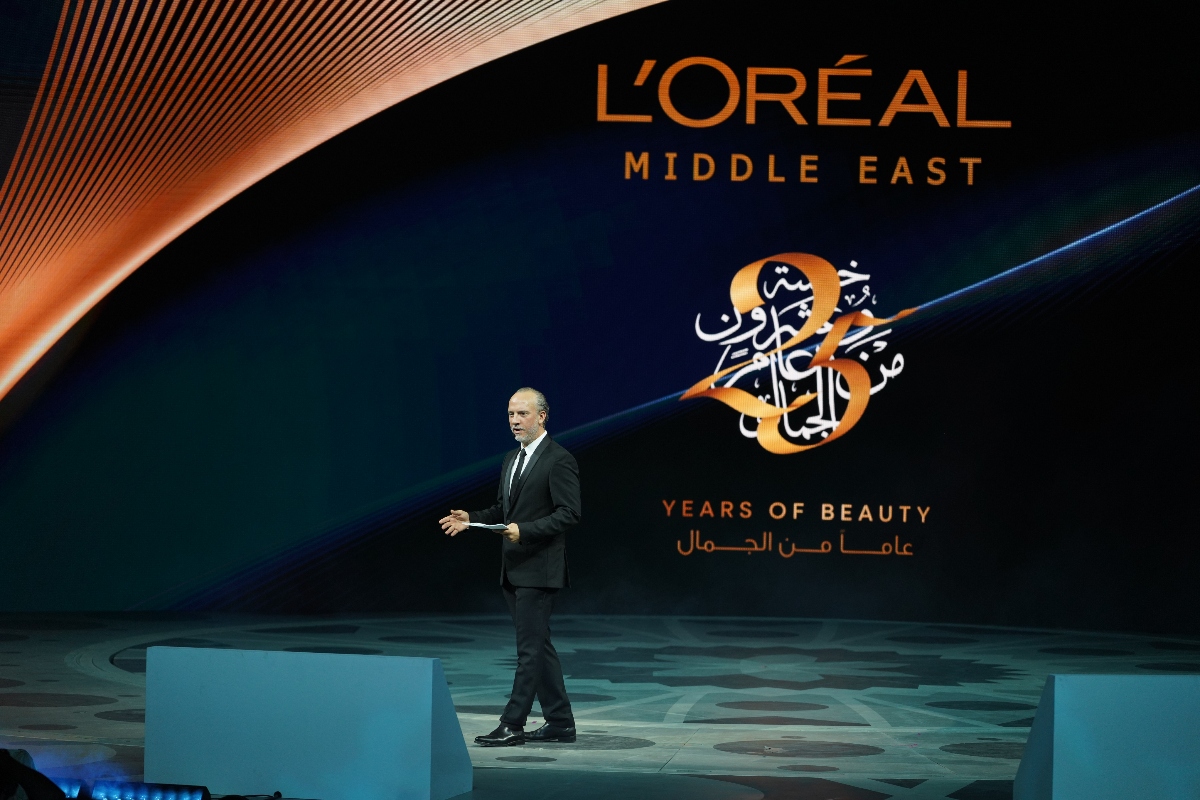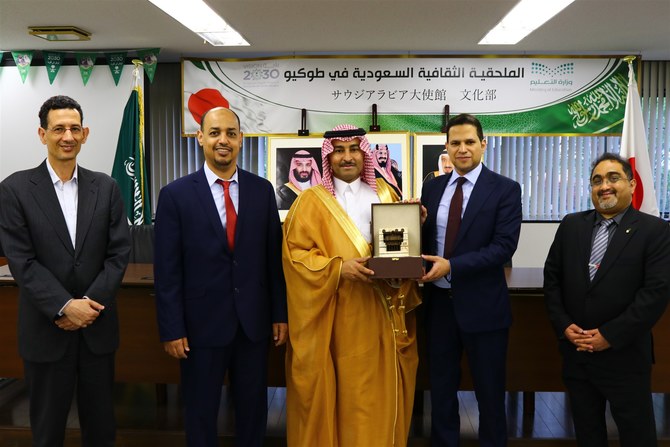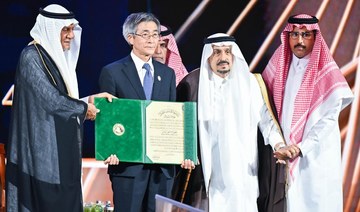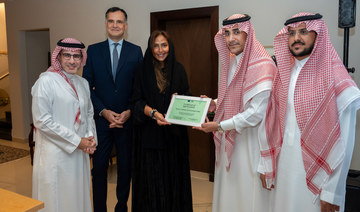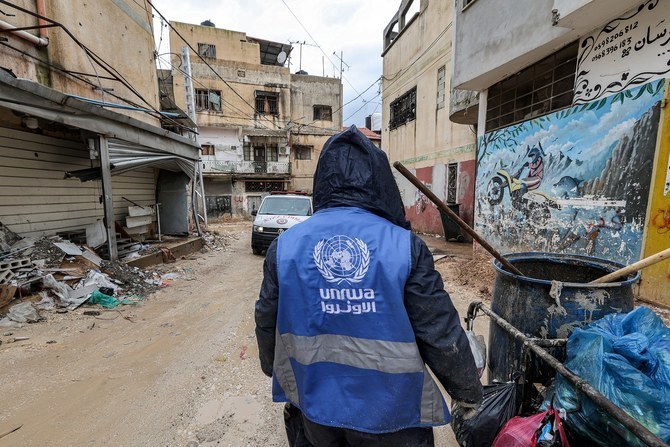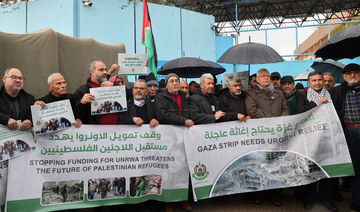RIYADH: South Korea’s ambassador to Saudi Arabia has spoken of his “thrill and excitement” over the “marvelous fruition” of cultural ties between the two countries.
Envoy Jo Byung-wook, recently seen on TV enthusiastically dancing and waving a light rod during a K-pop music concert in Jeddah, told Arab News that his country was looking forward to further enhancing Saudi-South Korean mutual understanding and connection of minds.
Relations have continued to blossom following Crown Prince Mohammed bin Salman’s visit to the east Asian nation last month — the most senior Saudi to tour South Korea since the late King Abdullah in 1998.
In the first bilateral summit between the two countries, the crown prince met with South Korean President Moon Jae-in at the presidential Blue House, and as well as discussing economic and investment prospects the leaders pledged to become “reliable friends for the future,” promising opportunities for cultural exchange.
Jo said that culturally, both countries had plenty to offer. “Korea has various cultural assets to attract Saudi people; pop music, drama, traditional dance, fashion, beauty, food, and even architecture, paintings, and interior design.”
He also highlighted which aspects of Saudi culture he would like to share with his own people. “In 2017 the exhibition ‘Roads of Arabia’ was held in Seoul for about three months, showing Saudi culture and history with its archaeological artifacts, which attracted and fascinated more than 120,000 Koreans. I think this is a good example of what the Kingdom can introduce to Korea.
“Saudi Arabia has beautiful Arabic calligraphy, especially that of the Holy Qur’an, which I believe could fascinate Koreans, since we also have our own way of calligraphy. And Saudi traditional cuisine is very unique and healthy, so I always wanted to introduce it to Korean people,” said Jo.
According to the communique which followed the crown prince and South Korean president’s meeting, the two nations also wished to work on “enhancing cultural and popular exchanges and build bases for cooperation that would continue affecting the coming generations.” To that end, memorandums of understanding were signed in the fields of culture, tourism, sport, social protection, human resources management and civil service.
Academic scholarships
The official communication also stated that South Korea and Saudi Arabia had agreed to expand academic scholarships, exchange programs, educational opportunities, student visits, the translation of distinguished scientific and arts materials and their publication in scientific journals.
Jo added that the Korean Embassy was planning to host several events that would help promote cultural exchange.
Korea is keen to help the Kingdom achieve the goals of Vision 2030, and Korea will actively participate in cultural activities in the Kingdom so that we may contribute to achieving the ‘vibrant society’ goal of Vision 2030.
Ambassador Jo Byung-wook
“The embassy has started a new cultural journey since last year, because my assignment coincided with the period of transformation the Kingdom is undergoing with the launch of Vision 2030,” he said.
During 2018, the embassy held several events including the Korea-Arab Friendship Caravan showcasing traditional and modern Korean music and dance, an exhibit at the Riyadh National Museum — on loan from the Korean National Museum -— displaying more than 500 archaeological artifacts, and the screening of the first Korean movie at the Indian Embassy.
This year officials have planned even more events, such as the 4th Korean Ambassador’s Cup Taekwondo tournament, the 1st Korean Film festival, which will screen several Korean movies, the 2nd Ambassador’s Cup Korean Speech Contest, a reception for Korean National Day, and a workshop by Korean handicraft experts.
“Korea is keen to help the Kingdom achieve the goals of Vision 2030, and Korea will actively participate in cultural activities in the Kingdom so that we may contribute to achieving the ‘vibrant society’ goal of Vision 2030,” said the envoy.
He also commented on the popularity of K-pop, or South Korean popular music, which has recently been sweeping the nation. K-pop boy band Super Junior recently took to the stage during the Jeddah Season festival as part of their world tour, becoming the first Korean group to perform in the Kingdom.
Jo said: “These concerts will help promote cultural cooperation and increase mutual goodwill between Korea and Saudi Arabia, because culture plays an important role in enhancing mutual understanding and connecting people’s minds.”
The ambassador was famously seen on a televised broadcast getting into his groove at the show. “During the concert, I was so thrilled and excited, and could feel the enormous change that Saudi Arabia is going through, which I believe is a beginning of a marvelous fruition. I can say that I saw a whole new Saudi Arabia that night,” he added.
Jo expected more K-pop groups to appear in the Kingdom, including BTS who are due to perform in the Saudi capital in October as part of Riyadh Season.



